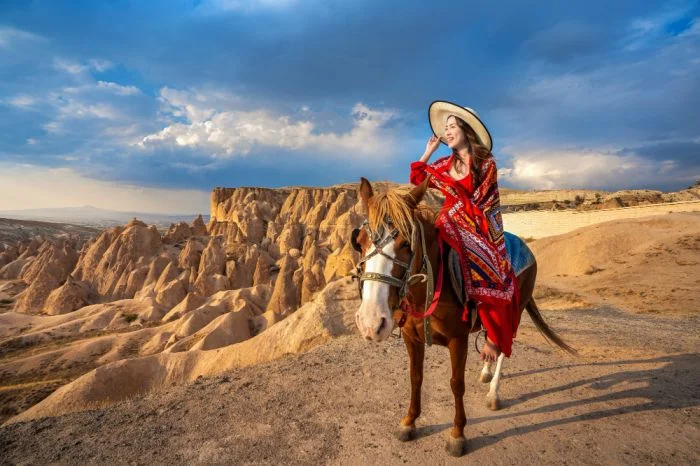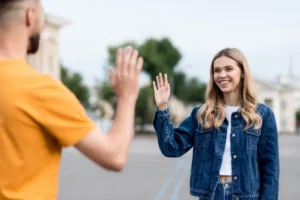Have you ever been greeted with a casual “Wagwan” and felt caught off guard? It happened to me during my first trip to London. A stranger smiled at me on the bus and said, “Wagwan, bruv?” For a moment, I froze. Was it a question? A challenge? Or just a hello? That small encounter sparked my curiosity, and over time, I discovered that learning how to respond to “wagwan” isn’t just about slang—it’s about cultural connection, confidence, and showing respect in conversations.
This article explores the meaning of “wagwan,” the different ways you can respond depending on the context, and why mastering this little word can actually improve your conversational skills in both casual and professional settings.
What Does “Wagwan” Mean?
“Wagwan” (sometimes written as wag1) comes from Jamaican Patois and is widely used in Caribbean and urban British communities. It’s a shortened version of “What’s going on?”—a friendly greeting, much like saying “What’s up?” or “How are you?”
Today, you’ll often hear it in London, Birmingham, Manchester, and among young people across the UK thanks to grime, reggae, and urban culture. It’s a word that signals warmth and familiarity, not formality.
As linguist Dr. Carolyn Cooper, professor of literary and cultural studies in Jamaica, explains in her research on Jamaican Creole:
“Expressions like ‘wagwan’ are not just greetings—they are cultural connectors, affirming community and shared identity.”
How to Respond to “Wagwan” in Everyday Situations
Your response depends largely on tone, setting, and your relationship with the speaker. Let’s break it down.
1. The Classic Friendly Reply
If someone greets you casually on the street or at a social gathering:
- “I’m good, wagwan with you?”
- “All good, my guy. You?”
These mirror the relaxed style of the greeting, showing that you’re comfortable and confident in that space.
2. Keep It Short and Casual
If you don’t want to overthink it:
- “Safe, bro.”
- “Bless.”
- “Easy, fam.”
These quick-fire responses are common in urban British slang and help you blend in naturally.
3. Add Humour and Personality
Want to stand out a little?
- “Same old drama, just less exciting than Netflix.”
- “Trying to survive Monday, you know how it is.”
Humour works particularly well among friends, as it keeps the conversation light and engaging.
4. Professional or Polite Settings
If you hear “wagwan” in a workplace or semi-formal environment (yes, it happens):
- “Doing well, thank you. How about yourself?”
- “All good on my end, hope the same for you.”
Here, you balance respect for the greeting with professionalism.
5. If You’re Unsure
Sometimes, it’s best to keep things simple if you’re not fully confident:
- “Hey, how’s it going?”
- “Good to see you.”
By acknowledging without overthinking, you avoid awkwardness while still being friendly.
Why Responding Well to “Wagwan” Matters
At first glance, this may seem like a small, casual phrase. But how you respond actually speaks volumes about:
- Cultural Awareness → Showing you respect and understand different backgrounds.
- Social Confidence → Being quick on your feet in conversations makes you more approachable.
- Relationship Building → Matching someone’s energy builds trust and relatability.
In fact, a 2018 study in the Journal of Language and Social Psychology found that mirroring someone’s greeting style can increase feelings of connection and social bonding.
Real-World Examples
I asked three friends from London how they typically respond to “wagwan.” Here’s what they said:
- Amir (24, student): “I just say ‘wagwan, fam’ back. It’s almost automatic, like saying hello.”
- Tasha (29, marketing exec): “If it’s someone I don’t know well, I’ll just say ‘Hey, how you doing?’ to keep it polite.”
- Marcus (32, musician): “Humour’s my thing. I’ll reply like, ‘Just dodging emails, you?’ It gets a laugh.”
Their answers show that context matters more than the phrase itself—it’s about adapting to the vibe.
Common Mistakes to Avoid
Even though “wagwan” is friendly, some responses can come off awkward if you’re not careful:
- Overly formal replies like “Good afternoon, how do you do?” feel mismatched.
- Ignoring the greeting can come across as rude.
- Overusing slang you don’t normally use might feel forced. Authenticity matters.
FAQs
1. Is “wagwan” rude?
No—it’s casual and friendly, not offensive.
2. Can I say “wagwan” if I’m not Jamaican or British?
Yes, but use it naturally. If it’s not part of your usual speech, it may feel out of place.
3. Is “wagwan” used in professional settings?
Rarely, but if it is, a polite and respectful response works best.
4. What’s the difference between “wagwan” and “what’s up”?
They mean the same thing, but “wagwan” carries cultural roots in Jamaican Patois and British street slang.
Actionable Takeaways
- Match the tone: Respond in a way that reflects the speaker’s mood and the setting.
- Keep it authentic: Don’t force slang if it doesn’t feel natural to you.
- Use humour wisely: Light jokes can make the interaction more engaging.
- Respect cultural roots: Recognise that “wagwan” comes from Jamaican Patois, and using it respectfully builds cultural appreciation.
Read Also: Response to ‘How Have You Been Doing?’: Real-Life Answers, Expert Tips & Genuine Ways to Reply
Final Thoughts
The next time someone says “Wagwan,” you won’t be caught off guard. Whether you’re in a casual hangout, a workplace, or meeting new people, the key is to respond in a way that’s authentic to you and respectful to them.
I’d love to hear your own experiences: Have you ever been greeted with “wagwan”? How did you respond, and did it feel natural or awkward? Share your story in the comments—I’m genuinely curious.
Read Also: Expert Guidance Improves College Admission Success: Yes or No?
Further Reading:




